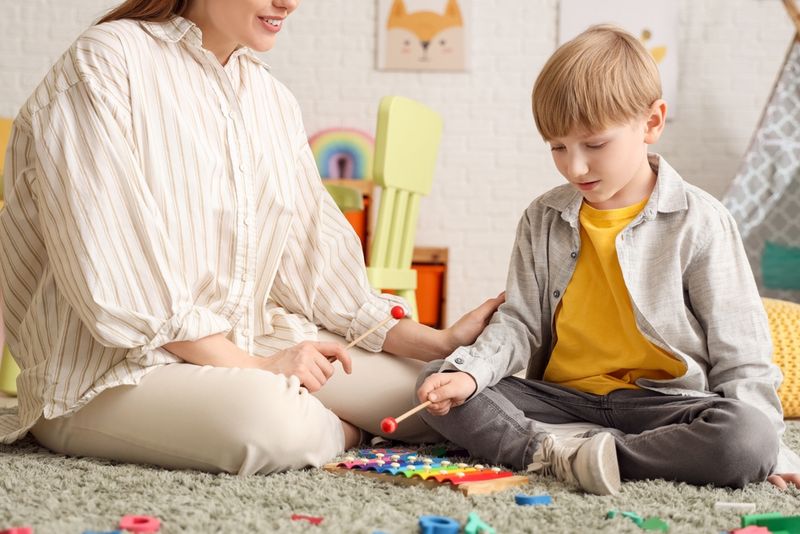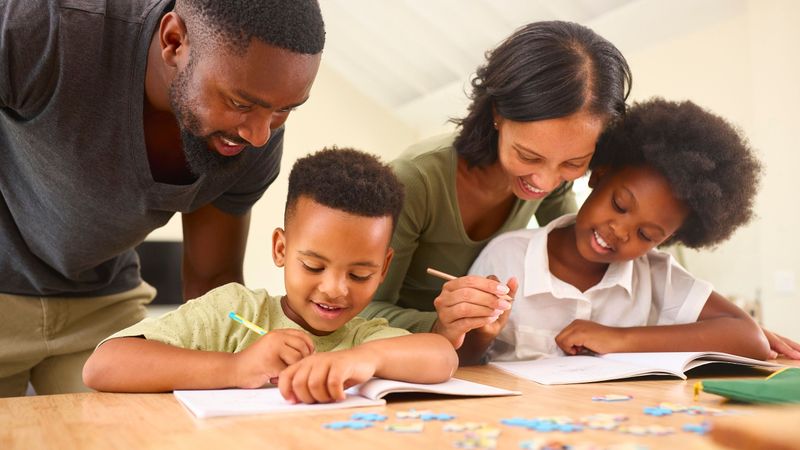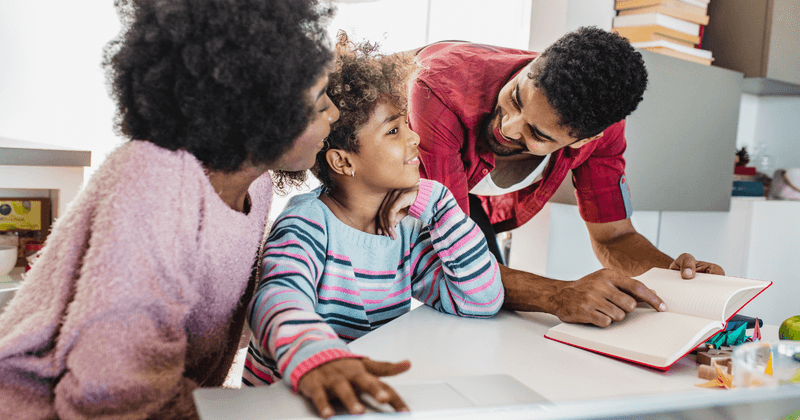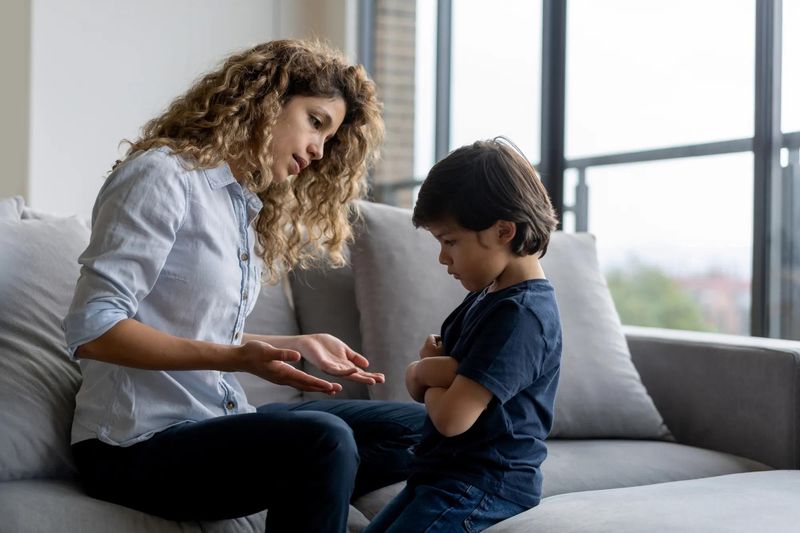In the journey of parenting, the smallest habits can make the biggest impact. While there’s no one-size-fits-all blueprint, psychologists agree on certain practices that foster emotional health and self-awareness in children.
These habits, though simple, are profound in shaping young minds and hearts. Here, we explore 15 such habits, celebrating the everyday actions that quietly demonstrate great parenting. By embracing these, parents can feel assured they are nurturing their kids in the most loving and effective way possible.
Let’s delve into these encouraging practices that are not only signs of great parenting but also cornerstones of happy, resilient families.
1. You Apologize When You’re Wrong
Admitting mistakes shows strength, not weakness. When parents apologize, they teach a vital lesson in humility and accountability. This habit fosters an environment where children feel safe to make mistakes and learn from them without fear.
Imagine the impact on a child when they see their parent owning up to an error—it’s a powerful model of honesty and integrity. This practice encourages open communication and builds trust, laying the groundwork for a strong, honest relationship.
By demonstrating that everyone makes mistakes and what matters is how we handle them, parents instill resilience and empathy in their children.
2. You Let Your Child Express Big Emotions
Allowing children to express big emotions is crucial in their emotional development. When parents validate these feelings, they provide a safe space for children to explore their emotions without fear of judgment or reprimand.
This habit encourages emotional intelligence, teaching kids that all feelings are valid and manageable. The key is not to suppress but to guide and support them in understanding and navigating these emotions.
Parents who embrace this practice often find their children developing into empathetic and emotionally aware individuals, capable of expressing and managing their emotions effectively.
3. You Teach—Not Threaten—Consequences
Teaching consequences rather than imposing threats creates a constructive learning environment. When children understand the reasons behind rules, they learn responsibility and develop a sense of accountability.
This approach fosters critical thinking and problem-solving skills, as children begin to anticipate and evaluate potential outcomes of their actions. It’s about guidance and understanding rather than fear and compliance.
Parents who focus on teaching rather than threatening cultivate a relationship built on mutual respect, where children feel motivated to make positive choices and learn from their experiences.
4. You Listen Without Interrupting
In a world full of distractions, truly listening to your child is a gift. When parents listen without interrupting, they validate their child’s thoughts and feelings, fostering self-esteem and confidence.
This habit shows respect and builds a strong foundation for communication, where children feel heard and valued. It encourages them to express themselves openly, knowing they have an attentive and empathetic audience.
By prioritizing this practice, parents demonstrate that their child’s voice matters, promoting a deeper, more trusting relationship that lasts a lifetime.
5. You Model the Behavior You Expect
Children learn more from what they see than what they hear. When parents model the behavior they expect, they set a powerful example that children naturally emulate. Whether it’s showing kindness, patience, or integrity, these actions speak louder than words.
This habit reinforces values and ethics, providing a living example for children to follow. It creates a consistent and reliable environment where children understand the family’s core values.
By embodying the qualities they wish to instill, parents foster a culture of mutual respect, shaping the child’s character and guiding them toward becoming responsible adults.
6. You Create Predictable Routines
Predictable routines provide children with a sense of security and stability. When parents establish consistent daily habits, children thrive in the structure it creates. Routines help reduce anxiety by setting clear expectations and timelines.
This practice is not about rigidity but about creating a comforting and reliable environment. Children learn time management and the importance of sticking to a plan, skills that benefit them throughout life.
By maintaining this habit, parents offer their children a reassuring framework within which they can explore and grow, knowing they have a stable anchor in their daily lives.
7. You Make Space for Their Interests
Supporting a child’s interests fuels their passion and enthusiasm for learning. When parents make space for their children’s hobbies, they encourage creativity and self-expression. This habit shows children that their interests are valued and worth pursuing.
It’s important for parents to provide encouragement and resources, allowing children to explore various activities without pressure. This freedom fosters independence and confidence.
Parents who indulge this practice often see their children flourish, developing unique talents and a strong sense of identity, feeling supported in their journey of exploration and growth.
8. You Respect Their Privacy
Respecting a child’s privacy is a cornerstone of trust. Parents who honor this space empower their children to develop autonomy and personal responsibility. This habit nurtures a safe environment for self-discovery and reflection.
Balancing oversight with respect, parents ensure their child feels trusted, which strengthens the parent-child relationship. It’s about acknowledging their growing need for independence while providing guidance when needed.
By maintaining this respect, parents foster a sense of dignity and mutual trust, enabling children to grow into confident individuals who respect their own and others’ boundaries.
9. You Say No—And Mean It—Without Guilt
Saying no is not about denial but about teaching boundaries. When parents say no and mean it, they provide clear, consistent guidelines that are crucial for a child’s understanding of limits.
This habit teaches children the importance of boundaries, helping them learn self-discipline and respect for rules. It conveys that saying no can be an act of love and guidance.
Parents who practice this without guilt set a strong precedent for decision-making, allowing children to appreciate the value of rules and the reasons behind them, reinforcing healthy boundaries in their lives.
10. You Admit You Don’t Know Everything
Admitting that you don’t know everything is a powerful lesson in humility and a commitment to lifelong learning. When parents model this behavior, they teach children the value of curiosity and open-mindedness.
This habit encourages children to ask questions and seek knowledge, fostering a culture of growth and exploration. It shows them that learning is a continuous journey and that it’s okay not to have all the answers.
By embracing this mindset, parents instill a love for learning and resilience in their children, preparing them to navigate the complexities of life with curiosity and confidence.
11. You Praise Effort More Than Outcome
Praising effort over outcome emphasizes the importance of perseverance and hard work. When parents focus on the process rather than the result, children learn to value their efforts and develop a growth mindset.
This habit fosters resilience and a love for learning, encouraging children to embrace challenges and learn from failures. It’s about recognizing the dedication and creativity involved in their endeavors.
Parents who adopt this approach help children build self-confidence and motivation, teaching them that effort is the true path to success, no matter the immediate outcome.
12. You Regulate Your Own Emotions
Regulating your own emotions is a foundational skill for great parenting. When parents manage their emotions effectively, they model emotional intelligence and stability for their children.
This habit creates a calm and secure home environment, teaching children how to handle stress and emotional challenges. It’s about showing them how to pause, reflect, and respond thoughtfully rather than react impulsively.
By prioritizing their emotional health, parents not only improve their well-being but also equip their children with the tools to navigate their own emotional landscapes with grace and resilience.
13. You Stay Consistent Even When It’s Hard
Consistency is key in parenting. When parents maintain rules and expectations, even during challenging times, they provide stability and predictability for their children.
This habit builds trust and security, as children know what to expect and feel safe in the consistency of their environment. It’s about being reliable and steadfast, even when faced with difficulties.
Parents who embrace this practice foster resilience in their children, teaching them the importance of perseverance and the value of staying true to commitments, creating a dependable and nurturing home.
14. You Celebrate Their Individuality
Celebrating a child’s individuality nurtures their self-esteem and confidence. When parents acknowledge and embrace their child’s unique traits, they provide an environment where children feel valued and understood.
This habit encourages children to explore their identity and pursue their passions without fear of judgment. It’s about recognizing and appreciating the diverse qualities that make each child special.
By fostering this acceptance, parents empower their children to be themselves and to take pride in their individuality, laying the foundation for a strong and positive self-image.
15. You Show Love Without Needing a Reason
Showing love without needing a reason reinforces the unconditional nature of a parent’s affection. When parents express love spontaneously, it assures children of their worth and the constancy of their parent’s support.
This habit strengthens the emotional bond and provides children with a sense of security and belonging. It’s about the simple, everyday gestures that convey love and care.
Parents who consistently demonstrate this love help build a nurturing environment where children feel cherished and accepted, fostering a lifelong sense of confidence and emotional well-being.
















